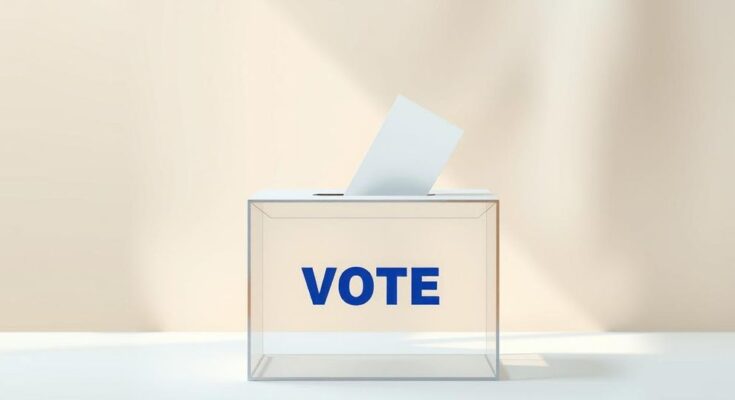Polls closed in Ecuador’s presidential election, with Daniel Noboa projected to win as he faces Luisa Gonzalez. The vote occurs under intensified violence, with citizens expressing urgent needs for change amid alarming crime rates and an unstable economy. Security forces are on high alert, reflecting fears of election-related violence and the ongoing drug crisis gripping the nation.
Polling concluded in Ecuador’s presidential election amid persistent violence, with incumbent Daniel Noboa anticipated to secure another term. Early exit polls indicated he would receive slightly above 50% of the vote, thereby averting a runoff against leftist opponent Luisa Gonzalez, who garnered approximately 42%. Official results will take several hours to be announced as nearly 14 million citizens cast ballots under heightened security measures.
The election has unfolded against a backdrop of considerable economic distress and violent cartel conflicts, which have drastically altered Ecuador’s previously safe status. Encouragingly, voters like Luis Jaime Torres expressed hope for substantial improvements; “The country is collapsing. The only thing I ask the new president is that they fix this mess,” he remarked.
With heightened security measures in place due to threats against the electoral process, heavily armed soldiers secured polling stations nationwide. Prior to voting, there had been limited reported infringements, mainly involving individuals violating a strict alcohol ban. The reality of violence remains striking, as candidates were guarded by special forces to prevent incidents reminiscent of the prior election, which saw a leading candidate assassinated.
Luisa Gonzalez, a leading candidate, acknowledged the risks to her safety, noting, “There are intelligence reports that say there are risks and that they want to take my life, but there is a bigger challenge here. There is a challenge to transform the country.” Whether Gonzales can surpass Noboa in the polls remains uncertain.
At only 37 years of age, Noboa’s rise in politics reflects the efforts of the son of a banana tycoon, who emphasizes a youthful image while adopting a hardline stance on crime. His social media engagement stands in contrast to his stringent security policies, aiming to resonate with younger voters on platforms they frequent.
The emergence of drug cartels has complicated security in Ecuador, as these groups supply growing global markets, leading to severe increases in violent crime. In response, Noboa declared a state of emergency, mobilizing military forces to curb escalating violence, including the distribution of ballots and closing borders with Colombia and Peru during the election period.
The reliance on armed forces has drawn criticism from human rights organizations. Reports of severe abuses and violence, including the recent discoveries of charred bodies near a military base, heighten concerns regarding state responses during this crisis.
The ongoing unrest has driven away tourism and investment, further burdening an economy likely facing recession. With expectations of increased unemployment and the looming challenge of returning migrants from the U.S., economic outlook remains bleak. Vinicio Colcha voiced concerns, stating, “It is a dark outlook.”
Ecuador is currently grappling with a severe crisis, intensified by violence stemming from drug cartels and a struggling economy. Historically, the nation was recognized for its safety, but this has drastically changed in recent years. The current election reflects these tensions as voters seek stability and security amidst escalating concerns about crime and governance. The political landscape is highly polarized, with issues of safety and economic recovery at the forefront.
In conclusion, Ecuador’s presidential election occurs under dire circumstances, with violence and economic instability shaping voter sentiment. Daniel Noboa appears poised to win, maintaining a hardline approach against crime and appealing to younger constituents. However, significant challenges lie ahead for whoever assumes leadership, particularly regarding national security and economic recovery amid rising drug-related violence and its repercussions.
Original Source: www.leaderherald.com




